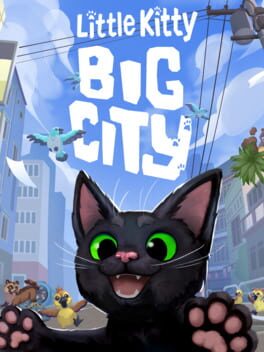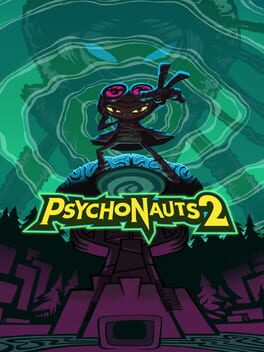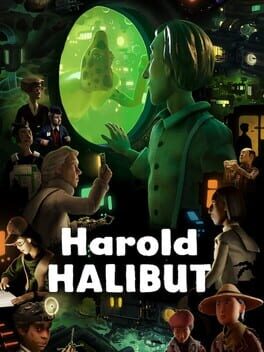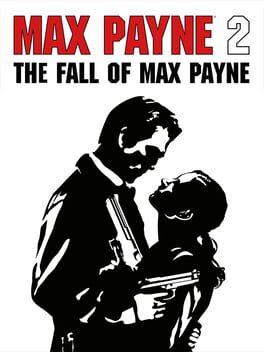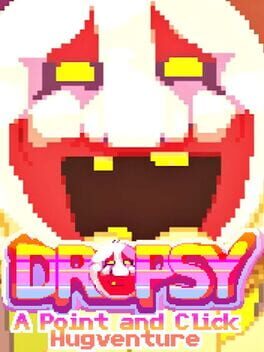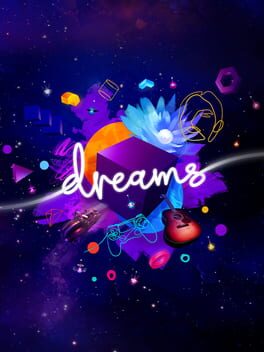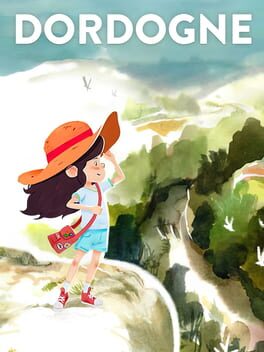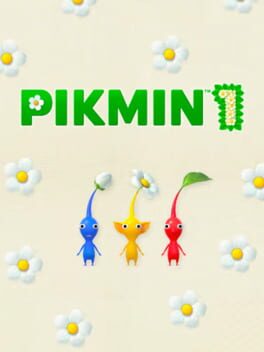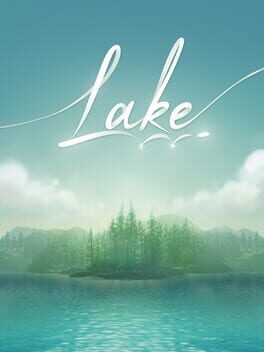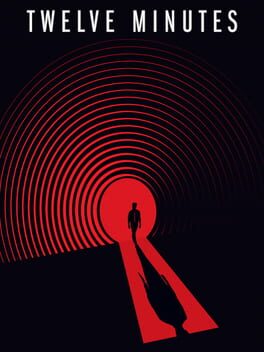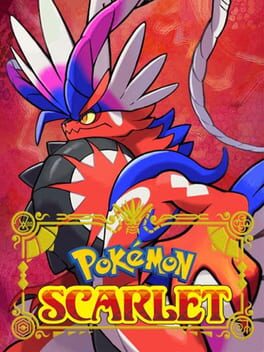tangysphere
BACKER
This is what I wanted Stray to be - a game with a nebulous overarching goal that you can achieve at some point but being able to spend the vast majority of your time going around doing cat things; making friends and causing chaos.
Could maybe have done with a little more to do in the hub world, or had that area be slightly bigger but still good fun.
Could maybe have done with a little more to do in the hub world, or had that area be slightly bigger but still good fun.
2021
The Short Message looks great and the cherry blossom monster design is actually really well done - it looks like a Silent Hill game (despite not being set there at all) and it gives me that grimey feel to the world that the trailers for the upcoming Remake feel like they're cleaned up a bit too much. Sure there are some framerate dips but I'm rarely too fussed by them and they didn't really distract from the experience. It also mostly sounds good - there's another great Yamaoka track in the credits and the intermittent background audio throughout does its absolute best to keep you on edge. It is unfortunately let down a little by less than stellar voicework and an especially unconvincing dub on some live-action cutscenes - not sure if this was meant to be intentionally ethereal but it ended up just looking and sounding bad.
It's major problems come with just about everything else though - the story, script and I guess the Short Message we're getting are eyerollingly blunt and really doesn't tackle any of the themes it mentions with anything more than a puddle's depth of thought. In general, wandering around an abandoned tower block isn't inherently bad but the lack of any kind of tension or real environmental storytelling while you're doing so just makes the experience a bit dull. I think it's trying and I appreciate that, but it just doesn't quite get there in execution.
There are segments with the aforementioned cherry-blossom monster that do give you something to think about, but only fleetingly - you're put through Otherworld maze sections where you're chased until you reach a magical exit door but these sections are mostly pretty linear until the very end where you find yourself wishing they had stayed that way. You're thrown into mazes which are likely meant to disorientate you and ratchet up the tension, they only really succeed in the first point. Chase sequences have been a staple of the first-person horror boom since Amnesia Dark Descent but this feels like another example of something being implemented because it's a genre thing - there's no thought as to how or why this relates the story or characters involved. It's a chase through a maze because that's what horror games do.
It's a very large map and so easy to get lost through doors and hallways that all look very similar, having to collect four items and then an exit all while being chased, with one wrong turn meaning you could run into the monster and need to start again. Less scary and more frustrating, and eventually pretty boring.
Even for free I don't think this is worth your time, even for Silent Hill fans. There are some nods to other games in the series but they're just reminders of better games. I've seen people say you can't be too critical of something that's free but I absolutely disagree - yes, I'm sure a lot of work went into this but it's still a finished product at the end of the day.
It's major problems come with just about everything else though - the story, script and I guess the Short Message we're getting are eyerollingly blunt and really doesn't tackle any of the themes it mentions with anything more than a puddle's depth of thought. In general, wandering around an abandoned tower block isn't inherently bad but the lack of any kind of tension or real environmental storytelling while you're doing so just makes the experience a bit dull. I think it's trying and I appreciate that, but it just doesn't quite get there in execution.
There are segments with the aforementioned cherry-blossom monster that do give you something to think about, but only fleetingly - you're put through Otherworld maze sections where you're chased until you reach a magical exit door but these sections are mostly pretty linear until the very end where you find yourself wishing they had stayed that way. You're thrown into mazes which are likely meant to disorientate you and ratchet up the tension, they only really succeed in the first point. Chase sequences have been a staple of the first-person horror boom since Amnesia Dark Descent but this feels like another example of something being implemented because it's a genre thing - there's no thought as to how or why this relates the story or characters involved. It's a chase through a maze because that's what horror games do.
It's a very large map and so easy to get lost through doors and hallways that all look very similar, having to collect four items and then an exit all while being chased, with one wrong turn meaning you could run into the monster and need to start again. Less scary and more frustrating, and eventually pretty boring.
Even for free I don't think this is worth your time, even for Silent Hill fans. There are some nods to other games in the series but they're just reminders of better games. I've seen people say you can't be too critical of something that's free but I absolutely disagree - yes, I'm sure a lot of work went into this but it's still a finished product at the end of the day.
2024
A person's tolerance for Harold Halibut is going to depend on how much mileage they get out of slower games where inhabiting the space and conversations are the key focus, rather than anything resembling moment to moment gameplay.
I don't blame anyone who doesn't get on with that or think that any single approach is objectively better or worse, but I was drawn in by the game's beautiful handcrafted aesthetic and its hold on me never really faltered throughout the runtime. The ship you live on is full of memorable characters with their own unique idiosyncrasies, all helped along by a strong voice work - for Harold specifically there's a great balance between goofy ignorance and sentimentality, and that personality is probably one of the major factors that kept me going.
But I must emphasise again that this is a very slow game and there are quirks that come with that - sometimes your movement speed is slowed to a crawl as you'e made to follow another character, sometimes the dialogue goes on a little longer than expected, and this will put some people off. Thankfully for me, I used that time to take in the absolutely gorgeous world, animation and the small details dotted around all the locations you visit.
I don't blame anyone who doesn't get on with that or think that any single approach is objectively better or worse, but I was drawn in by the game's beautiful handcrafted aesthetic and its hold on me never really faltered throughout the runtime. The ship you live on is full of memorable characters with their own unique idiosyncrasies, all helped along by a strong voice work - for Harold specifically there's a great balance between goofy ignorance and sentimentality, and that personality is probably one of the major factors that kept me going.
But I must emphasise again that this is a very slow game and there are quirks that come with that - sometimes your movement speed is slowed to a crawl as you'e made to follow another character, sometimes the dialogue goes on a little longer than expected, and this will put some people off. Thankfully for me, I used that time to take in the absolutely gorgeous world, animation and the small details dotted around all the locations you visit.
Probably a better game than the first game, but not quite as enjoyable an experience. Not that Max Payne 2 is bad; it's always fun to dip into bullet time as Max (or Mona) and use your arsenal to ragdoll goons all over the place. It's just missing a spark - there are great moments but the story maybe takes itself a bit too seriously, or possibly I just miss Sam Lake's face contortions on Max's character model and the graphic novel cutscenes.
2023
There's always a danger when making a follow-up to something that has become a little bit of a cult classic over the years that you lose what made the original entry so special but Remedy have deftly defied the odds, improving on all aspects of the first game. The shift to something a bit closer to survival horror (along with dual protagonists) was the perfect way to move the series forward, something that Remedy's penchant for mixing media in their storytelling dovetails neatly with.
Remedy themselves continue to be one of the most interesting big-budget studios out there, and their idiosyncratic narrative tendencies are perfect for the story they want to tell in Alan Wake II.
Remedy themselves continue to be one of the most interesting big-budget studios out there, and their idiosyncratic narrative tendencies are perfect for the story they want to tell in Alan Wake II.
2015
Dropsy is a misunderstood being, seemingly blamed for a fiery disaster at the circus and almost ostracised from society; an easy target due to their seeming illiteracy and unconventional look. In reality and despite appearances, Dropsy just wants to make people happy and will help anyone out in order to do so, all to achieve that elusive hug.
It's a wonderfully bizarre world and refreshingly open for an adventure game - sure, some sections are progress locked but the initial area you get to explore is substantial. Definitely one to play in a sitting or two so you don't forget where things you can't access just yet are waiting for you. The inhabitants are equally weird, each with their own requests to fulfill to get that hug (and maybe some progress) and your only clues for solving them being pictograms. The puzzles thankfully aren't too taxing but not having to rely on dialogue cues or item descriptions is a nice change of pace and adds a different kind of gameplay element to the genre.
I just really gelled with the overall experience - the art style matches the places you explore and the strange people you meet, the music is truly a delight and I was taken in with the basic but charming story.
It's a wonderfully bizarre world and refreshingly open for an adventure game - sure, some sections are progress locked but the initial area you get to explore is substantial. Definitely one to play in a sitting or two so you don't forget where things you can't access just yet are waiting for you. The inhabitants are equally weird, each with their own requests to fulfill to get that hug (and maybe some progress) and your only clues for solving them being pictograms. The puzzles thankfully aren't too taxing but not having to rely on dialogue cues or item descriptions is a nice change of pace and adds a different kind of gameplay element to the genre.
I just really gelled with the overall experience - the art style matches the places you explore and the strange people you meet, the music is truly a delight and I was taken in with the basic but charming story.
2022
Dripping in atmosphere and a narrative that manages to claw itself into your head hours and days after playing. There are a few design choices which could have been worked differently (I like limited inventory in games but the back and forth can get a touch laborious here) but the experience allowed me to pretty much completely overlook them.
2021
Forza Horizon 4, but in Mexico. I'd say if you enjoyed that then you'd also have a great time with this entry but for whatever reason I just can't gel with FH5 as much as I did its predecessor.
Maybe it's fatigue, maybe it's the locale not interesting me as much or maybe it's just noticing the things that didn't bother me last time as it was my first experience with the series. Every line of dialogue which seems like it's purposefully trying to ape Steve Buscemi in 30 Rock, interesting set pieces but with boring, indistinct track layouts, being constantly interrupted in the first 5-10 hours with new events being added to an already overstuffed map or having another set of numbers pop up or increase to give you a serotonin hit to keep you playing for as long as possible.
It still looks great and blasting around the world in each vehicle is still a gratifying experience as you bounce through sand dunes or jungle areas with reckless abandon. But while I think I had a decent enough time overall, at the end of my last session I couldn't help but feel that I had just spent three hours consuming content, rather than having a properly enjoyable experience.
My guess is that open-world racing might just not be for me in the long run and I just prefer games in this genre where I can properly learn specific tracks with distinguishing features and how each car will perform on them.
Maybe it's fatigue, maybe it's the locale not interesting me as much or maybe it's just noticing the things that didn't bother me last time as it was my first experience with the series. Every line of dialogue which seems like it's purposefully trying to ape Steve Buscemi in 30 Rock, interesting set pieces but with boring, indistinct track layouts, being constantly interrupted in the first 5-10 hours with new events being added to an already overstuffed map or having another set of numbers pop up or increase to give you a serotonin hit to keep you playing for as long as possible.
It still looks great and blasting around the world in each vehicle is still a gratifying experience as you bounce through sand dunes or jungle areas with reckless abandon. But while I think I had a decent enough time overall, at the end of my last session I couldn't help but feel that I had just spent three hours consuming content, rather than having a properly enjoyable experience.
My guess is that open-world racing might just not be for me in the long run and I just prefer games in this genre where I can properly learn specific tracks with distinguishing features and how each car will perform on them.
2020
The first impressions I had for Dreams were that the toolset was impressive but that kind of thing wasn't for me, and the Media Molecule content at the time was fine but severely lacking. Things have changed massively in my three years away and if you're not into creation, I'd recommend looking at the games that MM have created and highlighted as there are some really interesting looking experiences there. One of these was Tren, which launched last week, a delightful little puzzler where you need to make your way across various wooden train-set levels to the goal.
A lot of concepts are crammed in here and while some are occasionally overused of not hugely fun (sorry Cren), the majority are well designed and your movement as the train is simple while feeling natural. You have a free moving camera for 95% of levels which is fine but it can occasionally have a mind of its own, zooming in when you don't want it to, preventing you from seeing up ahead. A minor frustration normally but when you're up against a time limit it can lead to situations where it's hard to adjust and you miss hazards, necessitating a restart or reset to track. That said, it's a rare problem and the overall challenge ramps up quite nicely throughout, with some intricate and almost thrilling levels coming your way towards the very end of the game.
The set dressing is wonderfully cozy and all the paraphernalia strewn across the levels and hub world (three rooms in a house) really hit those nostalgia buttons. I also really liked the music - chill in hubs and more dedicated puzzle levels, but playfully intense where attempting to beat the clock is involved. Alongside a couple more specific MM throwbacks, it really made me miss what that studio can do in their own dedicated games.
And this last point really got me thinking about how the MM (and some user-generated) games that have been made in Dreams should be classified. These creations are made in Dreams and for sure I spent the hours in this software to play them, but they can also be fully fledged experiences (I spent 9 hours with Tren) with Dreams being more akin to an engine at that point. So I feel a bit strange about how to log, rate and review this and other Dreams games that I may try in the future - and there are a few that look really interesting - as while I'm technically playing Dreams, I'm also not. I know a line has to be drawn somewhere but it feels really fuzzy to me here.
Due to the huge toolset and variety of content that can be created which spans a huge range of genres and tone, I think Dreams in its own little world of almost being its own platform - a normal level creator this title is not - and I find it a bit disappointing that there's no way to talk about these games on BL in standalone terms. The record will say that I replayed Dreams with a playtime of 9 hours, but that really doesn't tell the whole story.
A lot of concepts are crammed in here and while some are occasionally overused of not hugely fun (sorry Cren), the majority are well designed and your movement as the train is simple while feeling natural. You have a free moving camera for 95% of levels which is fine but it can occasionally have a mind of its own, zooming in when you don't want it to, preventing you from seeing up ahead. A minor frustration normally but when you're up against a time limit it can lead to situations where it's hard to adjust and you miss hazards, necessitating a restart or reset to track. That said, it's a rare problem and the overall challenge ramps up quite nicely throughout, with some intricate and almost thrilling levels coming your way towards the very end of the game.
The set dressing is wonderfully cozy and all the paraphernalia strewn across the levels and hub world (three rooms in a house) really hit those nostalgia buttons. I also really liked the music - chill in hubs and more dedicated puzzle levels, but playfully intense where attempting to beat the clock is involved. Alongside a couple more specific MM throwbacks, it really made me miss what that studio can do in their own dedicated games.
And this last point really got me thinking about how the MM (and some user-generated) games that have been made in Dreams should be classified. These creations are made in Dreams and for sure I spent the hours in this software to play them, but they can also be fully fledged experiences (I spent 9 hours with Tren) with Dreams being more akin to an engine at that point. So I feel a bit strange about how to log, rate and review this and other Dreams games that I may try in the future - and there are a few that look really interesting - as while I'm technically playing Dreams, I'm also not. I know a line has to be drawn somewhere but it feels really fuzzy to me here.
Due to the huge toolset and variety of content that can be created which spans a huge range of genres and tone, I think Dreams in its own little world of almost being its own platform - a normal level creator this title is not - and I find it a bit disappointing that there's no way to talk about these games on BL in standalone terms. The record will say that I replayed Dreams with a playtime of 9 hours, but that really doesn't tell the whole story.
2023
I know it's a slow paced game (I went in expecting that), but everything takes just a little bit longer that it should. Things like turning keys and opening doors are a bit of a chore, and the transition delay from picking something up to be able to move again really did affect my desire to wander around what is a very beautiful world.
Narrative wise, I think the game fares a lot better in the story it sets in the past. It does wrap up quite suddenly and not entirely satisfactorily at the end but it was an engaging tale. The adult sections on the other hand are incredibly barebones and seem to exist solely as a bridge to move time forward a few days in your flashbacks.
Narrative wise, I think the game fares a lot better in the story it sets in the past. It does wrap up quite suddenly and not entirely satisfactorily at the end but it was an engaging tale. The adult sections on the other hand are incredibly barebones and seem to exist solely as a bridge to move time forward a few days in your flashbacks.
2023
2021
A nice idea executed poorly. Slice of life stuff combined with a slow pace was something I knew I was signing up for (and was actually looking forward to) and while the town itself looks really quite nice, I don't think there was a single interesting or believable character in Provincial Oaks.
I did however quite enjoy driving my van directly into the lake every day to fast travel back to the post office to end my shift. Probably not intended design, but it never got old.
I did however quite enjoy driving my van directly into the lake every day to fast travel back to the post office to end my shift. Probably not intended design, but it never got old.
2021
It's hard to imagine that I'll end up being as disappointed in another video game this year than I was with Twelve Minutes. The potential of utilising a timeloop with a mystery based point and click game would seem like a great mixture of genre and mechanics (and I still think it could be), but you'd be forgiven for thinking the opposite based on this.
The obvious problem here is that you're likely going to have to repeat your actions every now and then, something which has the potential to be a little bit monotonous. And alongside that, the game falls into the genre trap of having very specific solutions for certain puzzles which leads to potentially having to redo the loop entirely. There are a couple of ways to skip ahead but these are very specific and they don't save as much time as you might think.
Even then there was potential to come out of the game with a more positive outlook. Games of this genre can overcome issues like these if story is still intriguing, or the game's writing is able to keep you interested in what might come next. Unfortunately it doesn't take very long to realise that Twelve Minutes has neither of those either.
Part of the reason why these elements don't hit is due to this repetition, where you're provided with info dumps in one loop and then spend the next few working out how to apply that information, meaning there are sizable chunks of gameplay where you're learning nothing other than that a specific way to progress doesn't work. The other major reason is the reliance on multiple twists to further the plot, as well as relying on some of the more cliché mystery/thriller story elements, neither of which are earned. Sure they may theoretically explain away some of the unnatural and flat dialogue (I don't blame McEvoy, Ridley or Dafoe for this, to be clear) but in no way does it come across intentional.
All in all, it's just a massive shame that such an interesting concept ends up being bogged down by an amateurish story. It's not quite David Cage levels of bad but it's also not exactly streets away either...
The obvious problem here is that you're likely going to have to repeat your actions every now and then, something which has the potential to be a little bit monotonous. And alongside that, the game falls into the genre trap of having very specific solutions for certain puzzles which leads to potentially having to redo the loop entirely. There are a couple of ways to skip ahead but these are very specific and they don't save as much time as you might think.
Even then there was potential to come out of the game with a more positive outlook. Games of this genre can overcome issues like these if story is still intriguing, or the game's writing is able to keep you interested in what might come next. Unfortunately it doesn't take very long to realise that Twelve Minutes has neither of those either.
Part of the reason why these elements don't hit is due to this repetition, where you're provided with info dumps in one loop and then spend the next few working out how to apply that information, meaning there are sizable chunks of gameplay where you're learning nothing other than that a specific way to progress doesn't work. The other major reason is the reliance on multiple twists to further the plot, as well as relying on some of the more cliché mystery/thriller story elements, neither of which are earned. Sure they may theoretically explain away some of the unnatural and flat dialogue (I don't blame McEvoy, Ridley or Dafoe for this, to be clear) but in no way does it come across intentional.
All in all, it's just a massive shame that such an interesting concept ends up being bogged down by an amateurish story. It's not quite David Cage levels of bad but it's also not exactly streets away either...
2022
Everything is held together by dry spaghetti and scotch tape but the underlying Pokemon experience is the best it's been in years (well, maybe - depends how you define Arceus Legends in terms of mainline games).
If you can get over the (admittedly very large and noticeable) performance and graphical issues, there's a fun time waiting for you in Paldea.
If you can get over the (admittedly very large and noticeable) performance and graphical issues, there's a fun time waiting for you in Paldea.
